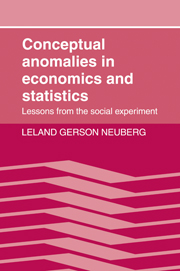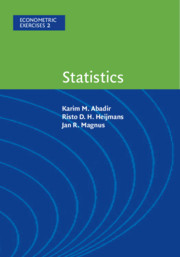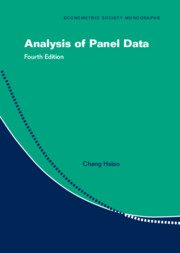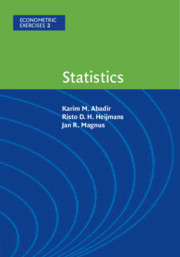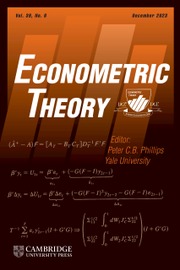Conceptual Anomalies in Economics and Statistics
This book explores anomalies in the conceptual basis of social control experiments and in the foundation of statistics and economics. Drawing upon several examples, the author argues that together such anomalies prevent microeconomics and statistics from providing a coherent understanding of human social behavior on par with the physical sciences. He concludes that social control experiments are a frequently overrated tool for social policy improvements.
Reviews & endorsements
"A critical introduction to the field recommended to strong souls capable of combining expertise with modesty." B. Hamminga, Erkenntnis
"This is a quite extraordinary book...a 'tour de force'." A. Lewis, Journal of Economic Psychology
"The book as a whole makes one think. I would like to think it be made compulsory reading for all economists." J.D. Hey, Economic Journal
Product details
May 1989Hardback
9780521304443
380 pages
228 × 152 × 26 mm
0.652kg
Available
Table of Contents
- Preface
- Introduction
- Part I. Statistical Logics:
- 1. J. S. Mill and some philosophical underpinnings of controlled experimentation
- 2. R. A. Fisher, randomization, and controlled experimentation
- 3. Some special difficulties of controlled social experiments
- 4. Hume's problem of induction in modern statistical inference and controlled experimentation
- Part II. Economic Logics:
- 5. Problems with a rationalist account of classical mechanics
- 6. Microeconomics striving to be a classical-mechanics-like science
- 7. The income maintenance experiments: microeconomic science or scientism?
- 8. Microeconomics striving to be deontology
- Conclusion
- Appendix
- References
- Symbols and abbreviations
- Index.

